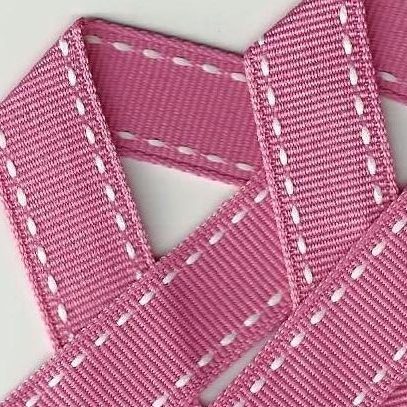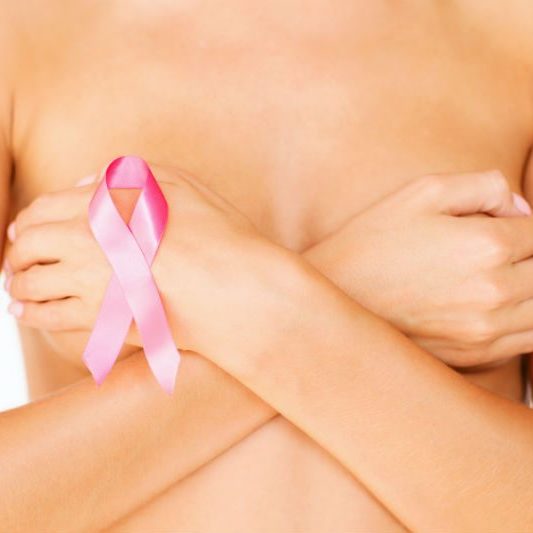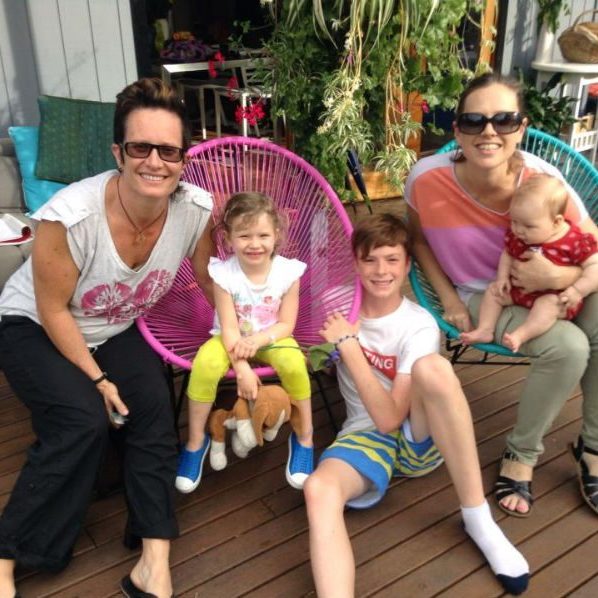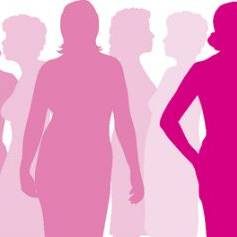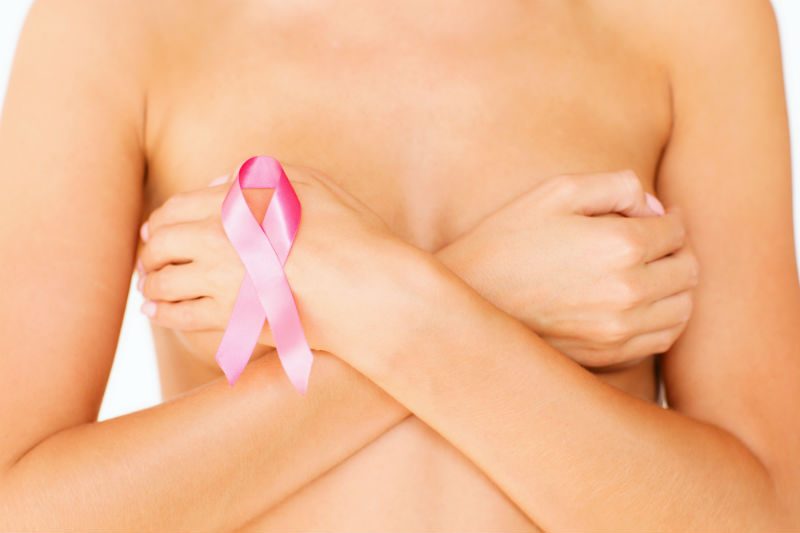
Our foremost breast cancer specialist talks about lesbians and her determination to finding a cure.
Dr. Susan Love has been the voice on breast cancer in America for two decades. The author of the groundbreaking bestseller, Dr. Susan Love’s Breast Book, now in its fifth edition, she’s also the founder and president of the Dr. Susan Love Research Foundation, a non-profit organization that promotes and funds breast cancer research.
But on June 8, 2012 she became something she never expected to be: a cancer patient. Being diagnosed with leukemia, Love said, changed her life. She says battling cancer herself has given her a completely different perspective on the disease. “When you are a physician, you’re comparing the patient to the ones who died.
So when they survive, you think it’s great. But when you’re a patient, you’re comparing yourself to how you were before. It’s completely different.”
Love says she’s doing well more than a year after treatment. She’s feeling better, eating healthily and running again. “I ran five miles the night before I was diagnosed. So to get back to running is symbolic.”
Running is a metaphor for Love, who can’t get to a cure for breast cancer fast enough. She’s OK with the pink this and pink that, but needs much more. “We have achieved awareness,” she asserts. “When the NFL wears pink, we’ve got that. Now it’s time to go on to the next step.”
Love is already there. It’s time, she declares, to be able to treat breast cancer like a chronic illness. It’s time to find the cause of breast cancer.
It sounds like an insurmountable task, but Love believes it’s doable. She points to cervical cancer as a model for cause and ultimate cure.
“Look,” she says, “we found the cause of cancer of the cervix in my lifetime (HPV or human papilloma virus). And now we have a vaccine that has decreased the risk for getting that cancer. HPV is also associated with certain cancers of the head and neck. So we know the causes of these cancers and we now have vaccines to prevent them.”
Cancer is all about mutated cells, Love explains. These move into the body somewhere and settle in. “We know certain things are related to breast cancer,” she asserts.
“Obesity, lack of exercise, taking HRT, late pregnancy—these are all related. But if we could find the mutated cell—it could be a virus or bacteria, it could be a radiation or something in the environment, a carcinogen—then we could develop a treatment plan.”
Her bias, Love says, “is that breast cancer is going to turn out to be infectious, caused by a virus. We have hints of this, so that’s where I think research should be headed. Cancer of the liver is caused by a virus, cancer of the stomach is caused by a virus.
When we look at AIDS research we can see the implications for cancer research. It’s probably going to be true [as it is with HPV] that some of us are more susceptible than others.”
Love acknowledges that the breast cancer gene—BRCA 1 & 2—is a factor, as it was for Angelina Jolie, but points out that it’s small. About five percent of women diagnosed with breast cancer have the gene or any kind of familial history of breast cancer. Most women diagnosed with breast cancer have no idea where it came from.
Nikki Weiss didn’t have any familial history of breast cancer, either. She was in the shower and noticed a dimpling on her left breast. “I just knew,” she says.
Weiss’s story is more common than any woman likes to think. At 40, she was a high-powered, A-list agent in Los Angeles in perfect shape and health. She jokes that even in college she was always the designated driver because she was always health-conscious.
Weiss had a wife, Jill Goldstein, and a three-month-old son, Adler. She had a beloved father-in-law who was himself dying of cancer. And now, standing in the shower, she just knew: she had cancer, too.
Like Love, Weiss has an indomitability that percolates around her. Where Love is the lesbian doctor determined to cure breast cancer, Weiss is the lesbian breast cancer survivor showing lesbians with breast cancer how to, as she puts it, “kick the shit out of cancer.”
Angelina Jolie had just revealed her own breast cancer story to the world when Weiss was beginning her own battle. (Weiss took the People magazine with Jolie on the cover to the hospital with her as a talisman.) While Jolie’s surgery—which Love describes as “sadly mutilating”—was prophylactic and nothing went wrong, Weiss’s was urgent and a lot went wrong.
“All these thoughts come into your head immediately,” Weiss explains. “Like, I can’t be a cancer patient—I’m a mom!”
Weiss says she struggled daily to be strong for those around her—her mother, her wife, her son. She put everything into her job. “I was in denial every day, just working,” she says. And not letting anyone she worked with know what she was fighting. “I was already afraid I might lose my life,” she says.
Diagnosed in January with cancer in her left breast, her “amazing, brilliant” doctor, Kristi Funk at the Pink Lotus Breast Center, didn’t like the look of Weiss’s right breast. She decided to biopsy both breasts—luckily for Weiss, since later pathology returned a diagnosis of cancer in that breast as well.
It wasn’t the smooth process Jolie described, however. Weiss developed a raging infection after the initial lumpectomy that meant months of healing and prophylactic treatments before she could even have the mastectomy and reconstruction.
Throughout it all, she kept working.
Weiss’s double mastectomy was done June 24, removing all the cancerous tissue. She says she has “never felt more feminine or more womanly.” Her friends threw her a “Ta Ta to my Ta-Tas” party before her surgery, but she says she felt nothing but loathing toward her breasts.
“They were trying to kill me! I wanted them gone.” She’s thrilled with her new breasts—smaller and more appropriate to her slim build, she says. “It was my silver lining,” she laughs.
While her own positivity and strength got her through her cancer surgeries, she credits her lesbian relationship as well. “I could not have gotten through this without my wife,” she insists. “She was a rock. She was the best mother, the best wife, the best daughter.” Weiss pauses for a moment and adds, “I could breathe every day with her.”
Weiss’s experience—harrowing and painful as it has been—has a happy ending. Her scans in July showed no sign of cancer and a long-term drug regimen as backup will help ensure she stays cancer free. But Weiss and Love both know their cancer experiences aren’t the norm.
Yet.
And when Love hears stories like Angelina Jolie’s she gets angry. “How sad that all we have to offer her is to cut off a normal body part. That’s the message that didn’t get out—that the only way to save the lives of women with this gene right now is to cut them up. It’s not good enough.”
Love also thinks the American obsession with breasts has gotten in the way of re-directing breast cancer treatment and research. “I did some media around [the Jolie story],” she explains. “The people most horrified by her story were the men—‘Omigod, her wonderful breasts!’ But Jolie was forced by our lack of options to choose something that has so many side effects. This is not a benign surgery.”
Weiss’s experience underscores Love’s statement. Jolie escaped all those side effects Love notes, but Weiss did not.
Jolie’s choice—at only 37—Love says, “Really shows how little we’ve done and how far we have to go.”
Love’s determined to get us there. She founded the Army of Women in 2008 with initial funding from the Avon Foundation for Women. The goal is to gather one million women (Love is currently at just under 400,000) who are willing to participate in breast cancer research. The Love Army of Women is like a “match.com” between women and breast cancer researchers.
You can register to get emails about research studies looking for participants at www.armyofwomen.org. A second program, the HOW Study (Health of Women, but we need a few good men to participate, too), is the Dr. Susan Love Research Foundation’s own study.
It’s a long-term study, open to anyone over the age of 18, with and without a history of breast cancer, and is being conducted completely online by filling out a series of periodic questionnaires. You can learn more about the HOW Study and register to participate at www.healthofwomenstudy.org.
“We have to take the research into our own hands,” asserts Love. “And with this—you don’t even have to leave the couch to participate. Join the study!”
She explains that in the past, research has focused on who died of cancer, not on who got cancer and didn’t die. Her longitudinal study will look at women who have had breast cancer as well as those who haven’t. Love’s eagerness to save women’s lives has an urgency to it that makes you believe we’ll get there.
But what can lesbians do today to cut their risk factors, as we wait for that cause and cure to come our way?
Weiss is working on a program to get mammograms for women who can’t afford them. “Cancer is so scary, she says. It’s silent. We have to do the self-exams. We have to use whatever platform we have to get women to take control of their own health.”
Love could not agree more. In addition to mammograms from 40 on and not smoking, she says, “We have to take care of our health in general. Eat mostly fruits and vegetables. Don’t sit too much—sitting is the new smoking. You need to get up and be moving and walking. Exercise. Stay away from radiation: don’t have X-rays you don’t need. Avoid the carcinogens. Basically make your body as safe as you can.”
Love believes finding the cause and cure for breast cancer—so that women like Weiss don’t have to fear dying at 40 and leaving their wife and three-month-old baby alone—is on the horizon. “I’m optimistic. It is possible. We just have to put our minds to it.”

